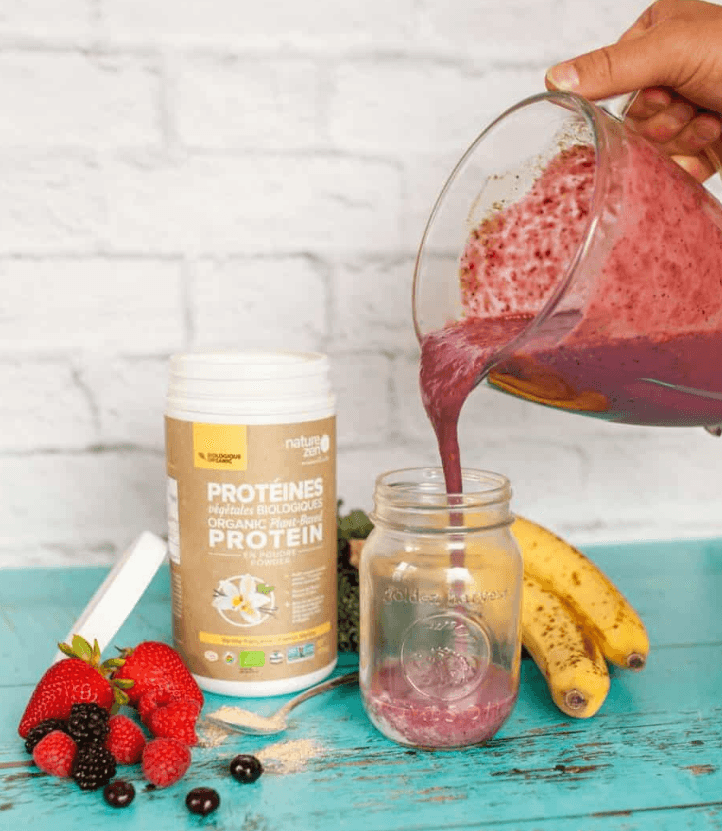Alternatives to Protein Powder: Cleaner, Smarter, and Sometimes Smarter
Not every athlete, liter, or endurance runner needs a shaker bottle to hit their protein goals. Whether you’re avoiding artificial ingredients, focusing on digestion, or just tired of chalky mixes, there are clean options that support recovery and general wellness — even if they’re not as efficient as whey for muscle protein synthesis.
Below, we break down four major alternatives to traditional protein powders — each offering distinct amino profiles, absorption rates, and benefits beyond the gym.

Collagen Protein
Collagen isn’t a complete protein, but it supports connective tissue repair and joint health. It’s rich in glycine, proline, and hydroxyproline — amino acids that strengthen tendons and skin elasticity. Collagen digests slowly, mixes easily into hot or cold liquids, and is popular among endurance athletes recovering from repetitive stress. Read more about my Collagen Protein Reviews.
Plant Protein
Plant-based proteins — like pea, rice, and hemp — are eco-friendly and suitable for lactose intolerance or vegan diets. However, they typically score lower on the PDCAAS scale due to incomplete amino profiles and reduced digestibility. If dairy wrecks your digestion, check out my Plant Protein Reviews that can help vegans with sensitive stomach.
Clear Whey Protein
Clear whey is a filtered, fruit-flavored form of whey isolate that removes most fat and lactose. It offers the same leucine-rich amino profile as standard whey isolate but digests faster and feels lighter — ideal for intra- or post-workout hydration. Despite the name, it’s still a whey derivative and not a vegan or dairy-free option. Tired of milk-based flavors? Read my Clear Protein Reviews for a fruity flavor.
Native Whey Protein
Native whey is extracted directly from milk (not cheese byproducts) through low-heat filtration, preserving more bioactive fractions and slightly higher leucine levels. While still a diary protein, it’s marketed as a “cleaner” whey form with minimal denaturation. It’s digestibility and amino profile rival traditional isolates. Finally, read my Native Whey Protein Reviews to see which native whey protein is worth your money.
Paleo Protein Powders
Paleo protein powders are built for dairy-sensitive and whole-food buyers, typically using egg white or beef protein isolate. They often digest easier than whey, but many are less leucine-dense, meaning a true post-workout MPS dose can require more servings. If your goal is Paleo compliance and a cleaner-ingredient approach, this category makes sense. Read my Paleo Protein Powder Reviews to see which ones are actually transparent and worth buying.
BCAA
BCAA supplements are marketed like a shortcut to muscle, recovery, and “intra-workout performance,” but most buyers don’t realize the math is usually backwards. If you’re already hitting total daily protein (and especially if you use a leucine-rich whey), standalone BCAAs often add more flavoring than value, and they’re rarely transparent enough to justify the price. That said, some BCAA formulas do matter in specific situations: fasted training, low-protein days, or when the label actually proves dosing ratios, amino sourcing, and third-party testing.
Read my BCAA Review articles to see which products are properly dosed, clearly labeled, and worth buying, and which ones are just expensive water enhancer with a gym membership.
FAQ: Alternatives to Protein Powder
No. Whey isolate and whey concentrate remain the most efficient for triggering muscle protein synthesis due to their leucine concentration and high amount of protein per serving. Alternatives like collagen and plant proteins serve different wellness goals, but will need more servings to stimulate MPS.
Yes, but you’ll need to combine complementary sources (e.g., pea & rice) to improve amino balance. The quality of plant blends has improved but they still fall short of whey’s BCAA profile and protein per serving.
Collagen and clear whey typically cause the least bloating. Plant proteins may contain additional nutrients, life fiber, that can trigger mild GI discomfort.
Native whey’ amino profile is similar, but offers more leucine per serving. Research has shared that consuming native whey post workout leads to a higher blood leucine content, instead of stimulating MPS.
Clear whey or native whey are most effective post-workout due to faster absorption. Collagen, BCAA, paleo, and plant proteins are better suited for meal support or recovery throughout the day.
All protein rankings are based on my actual label audits, amino spiking checks, and review SOP — not brand sponsorships.
See my author credentials and testing standards on the JKremmerFitness credentials page.
Have a protein you want tested? Request a review.